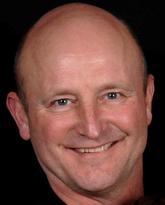
Karl T. Riabowol
Professor
Professor
Member
Member
Member
Associate Scientific Staff Member
B.Sc. (Bachelor of Science) Ph.D. (Doctor of Philosophy)
Contact information
Phone
Location
Research and teaching
Research Activities
The Riabowol Laboratory studies the mechanisms that are critical for enforcing the state of cellular senescence in normal human cells and to determine how these mechanisms are eluded during the process of cancer cell immortalization. We examine the roles of telomeres, tumour suppressors and transcription factors in these processes and we discovered a novel tumour suppressor we called ING1 for INhibitor of Growth that is intimately involved in cell aging and immortalization. The five member ING gene family encodes >15 proteins produced by alternative splicing and promoter usage that contain PHD domains that specifically recognize the H3K4Me3 histone mark of active transcription. Recognition of H3K4Me3 allows them to read the histone code and subsequently target either histone acetyltransferase (HAT) or histone deacetylase (HDAC) complexes to regulate local chromatin structure and gene expression. A number of knockout models in different experimental systems are being developed to examine the contribution of telomeres to biological aging and the ING proteins to cell development and aging.
Research Areas:
Cell Signalling and Structure
Genomics Proteomics and Bioinformatics
Molecular Biology and Disease
Research Personnel:
-
Stephanie Thibodeau, M.Sc. Research Technician/Lab Manager
-
Yang Yang, M.D. Ph.D. Research Assistant
-
Hamed Hojjat, Ph. D. Research Associate
-
Arthur Dantas, Ph.D. Graduate Student
-
Buthaina al Shueili, Ph.D. Graduate Student
-
Jack Atwell, Ph.D. Graduate Student
-
Sergey Dadoyan, Ph.D. Graduate Student
-
Alexander Hill, M.Sc. Graduate Student
-
Lukus van Vlaanderen, Honours Undergraduate Student
-
Benedicta Odame-Ankrah, Administrative Assistant
